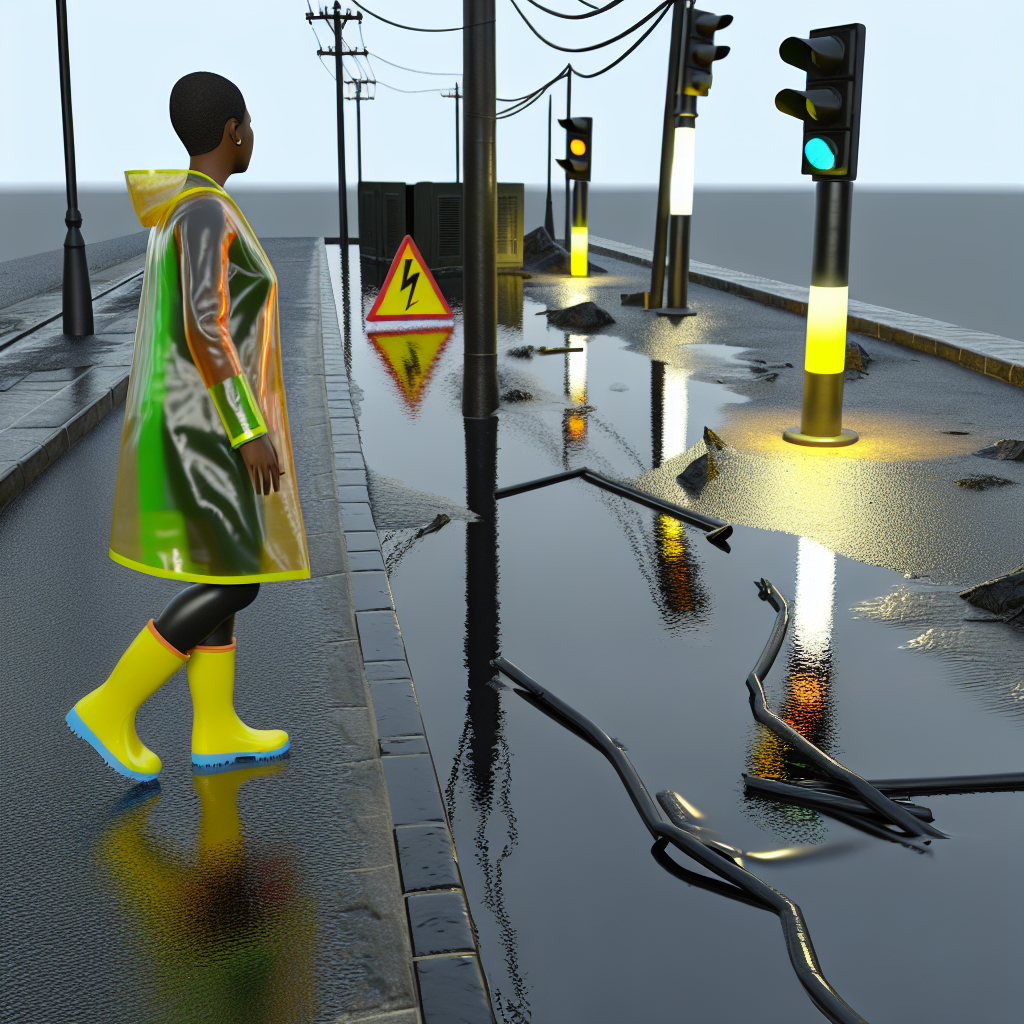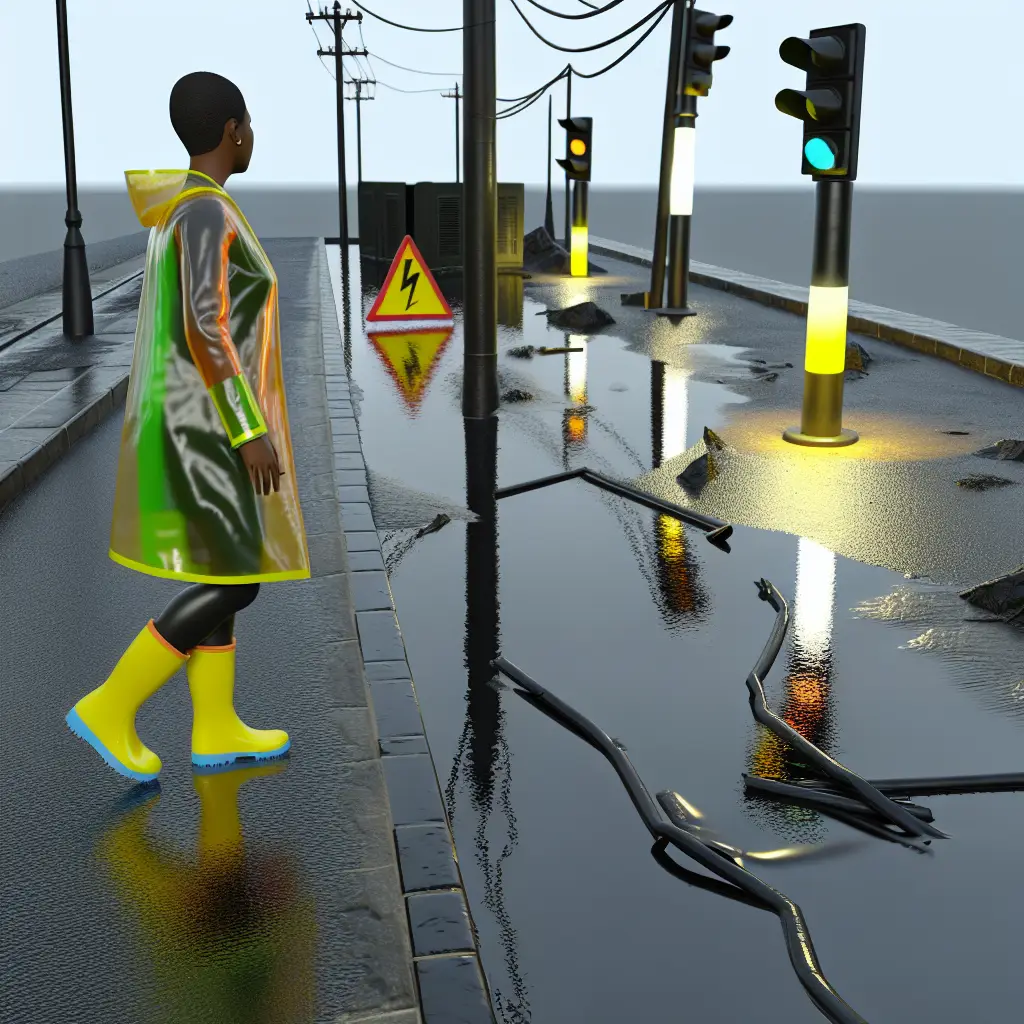
How to Detect Electric Current Leak in Public Places During Rain and Protect Yourself from Shock
Rainy weather can be beautiful, but it also poses serious risks, especially when it comes to electrical safety. Electric current leaks are more common during rain due to the increased moisture, which can lead to dangerous and potentially fatal electric shocks. This guide will teach you how to detect electric current leaks in public places during rain and provide effective tips to protect yourself from electric shock.
Understanding Electric Current Leaks
Before we dive into detection methods, it’s vital to understand what electric current leaks are. Electrical leakage occurs when electricity escapes its intended circuit and flows through an unintended path. During rain, water acts as a conductor, increasing the likelihood of such leakages in:
- Streetlights
- Power poles
- Outdoor electrical outlets
- Utility boxes
How to Detect Electric Current Leak in Public Places During Rain
Visual Inspection
One of the easiest ways to detect electric current leaks during rain is through visual inspection:
- Sparks or arcing around electrical equipment.
- Flickering lights in streetlights.
- Discoloration around outlets or utility poles.
- Wet spots near electrical equipment showing unusual bubbling or frothing.
Using a Non-Contact Voltage Tester(CLICK HERE TO BUY ONE)
Non-contact voltage testers can detect electricity without direct contact:
- Hold the tester near the surface of the object being tested.
- The tester will light up or beep if electrical current is detected.
- Ensure the tester is designed to detect voltages in the range typically used for the electrical systems in public areas.
Pay Attention to Animal Behavior
Animals such as dogs can sometimes sense electric current that humans cannot detect. If you notice erratic behavior in dogs near electrical equipment, it could be a sign of a leak.
Professional Inspection
If you suspect a serious electrical issue, contact local authorities or an electrician for a professional assessment. They possess the expertise and equipment to safely handle and resolve the problem.
How to Protect Yourself from Electric Shock During Rain
Avoid Risk Areas
Stay clear from risky areas including:
- Puddles near streetlights
- Wet utility poles
- Power lines
- Flooded areas with downed power lines
Wear Insulating Footwear(CLICK HERE TO BUY)
Insulated footwear can significantly reduce the risk of electric shock. Rubber soles are good conductors of electricity and can provide an additional layer of safety.
Use Umbrellas and Raincoats
While this might seem obviously protective against rainwater, umbrellas and raincoats made from non-conductive materials can provide an added layer of protection against unexpected electrical hazards.
Don’t Touch Wet Electrical Equipment
Never touch electrical equipment when it’s wet. If you notice any exposed wires or damaged equipment, maintain a safe distance and immediately report it to the authorities.
Immediate Actions to Take When You Encounter an Electric Current Leak
Step Back and Warn Others
Immediately move away from the source and warn others to keep their distance. Wet conditions can cause electric current to travel through water, posing a danger to anyone nearby.
Call Emergency Services
Report the detected leakage to local emergency services. Provide them with the exact location and any visible or audible signs of electrical current leakage.
Shut Down the Power (If Safe and Possible)
If you have access to the main power supply and it is safe to do so, consider shutting down the power source to prevent further danger. Always prioritize safety and avoid taking unnecessary risks.
Conclusion
Detecting electric current leaks in public places during rain is crucial for ensuring public safety. By understanding the signs of electrical leakage and following the right protective measures, you can reduce the risk of electric shocks. Remember to stay vigilant, avoid risky areas, wear protective gear, and report any suspected leaks to the authorities. Stay safe, stay informed, and protect yourself and others during the rainy season.










